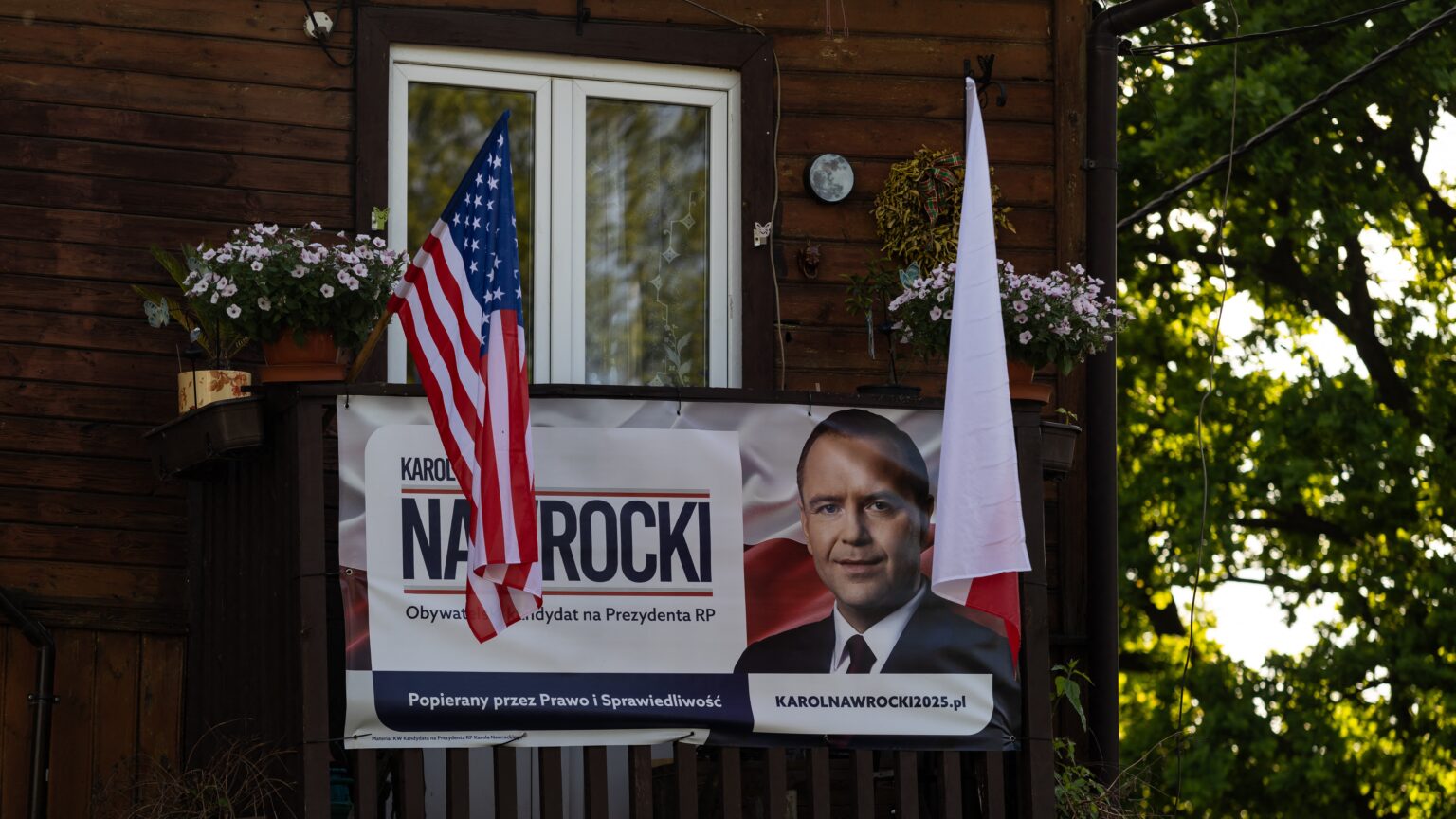
In a reversal of last year’s U.S. campaign outreach to Polish Americans, Polish presidential hopeful Karol Nawrocki is now courting Washington. His meeting with President Trump signals a rare, quasi-endorsement of a foreign candidate—one that’s ignited controversy back home amid claims of lawfare and foreign interference.
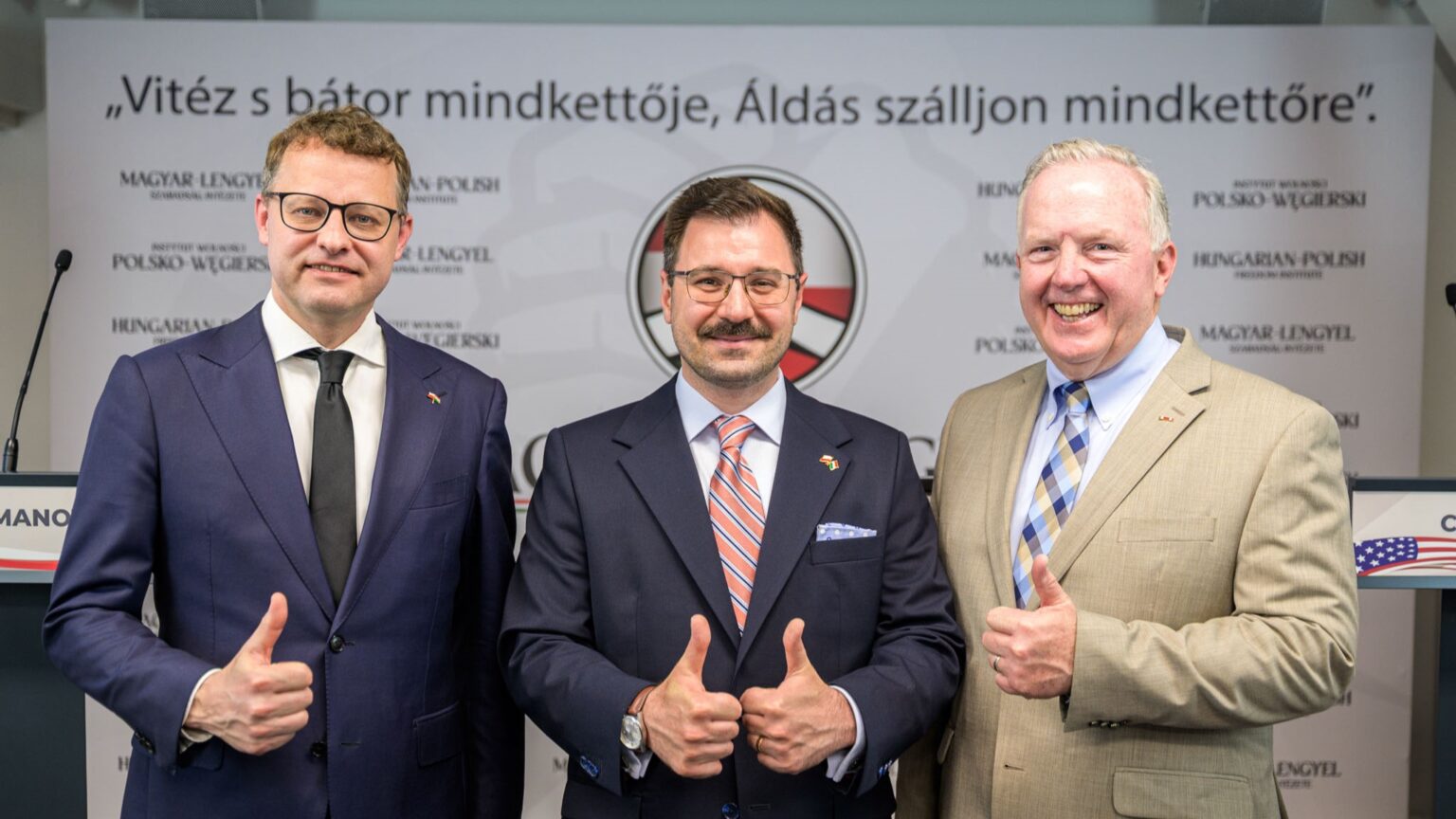
‘Marcin Romanowski is a principled leader, unjustly targeted by the Tusk government’s lawfare tactics. The politically motivated charges and aggressive legal actions against him, including the misuse of state institutions to silence political opposition, threaten the rule of law. Such actions undermine authentic democracy and reverberate negatively across Europe.’

‘The EPP held its Congress last week, in Valencia, Spain. The choice of location soon became a burden to the organizers, however, as locals’ EPP-inflicted wounds are fresh. About half a year ago, the region was hit by a deadly flood that took the lives of 228 people.’
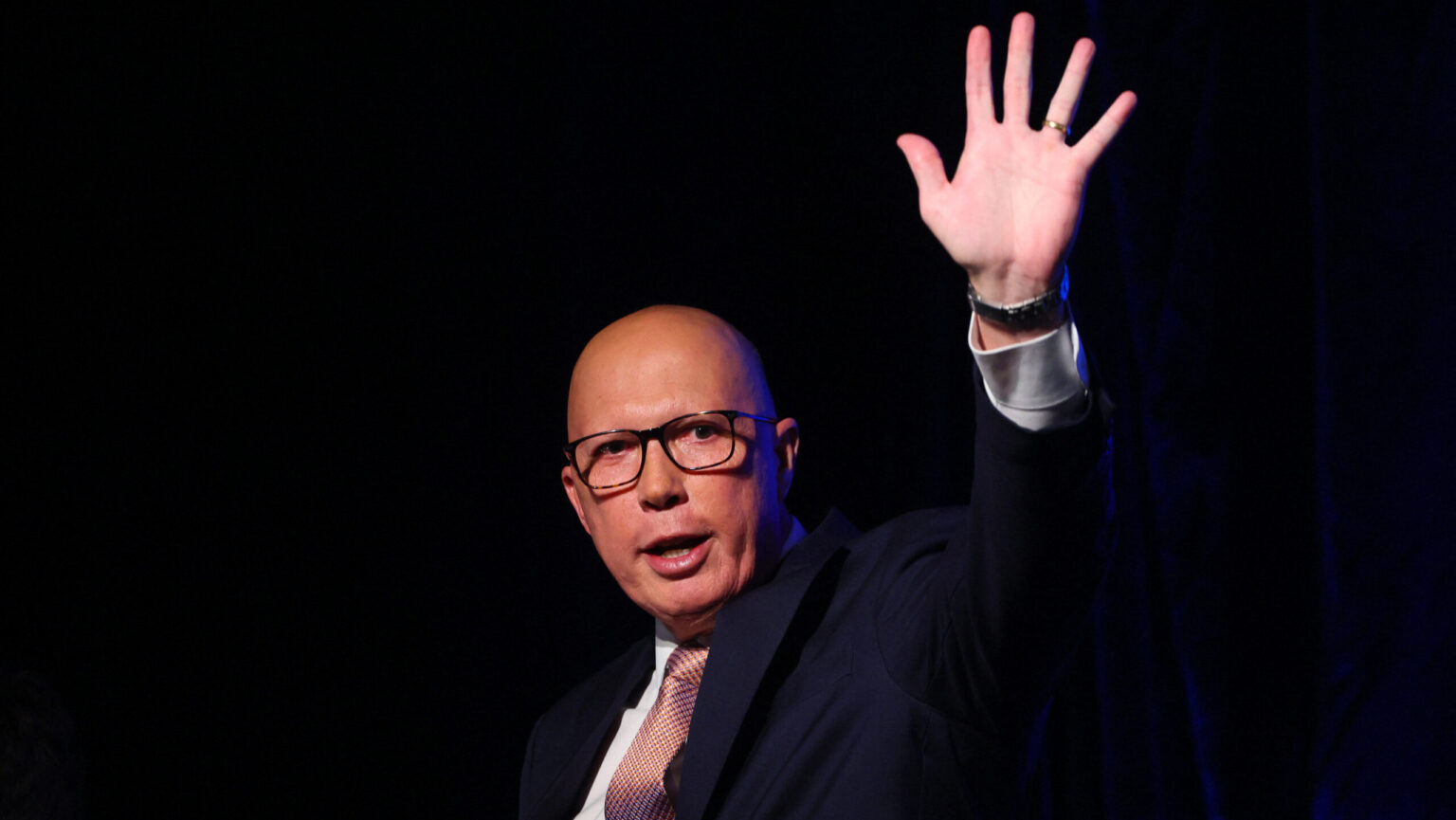
After the Canadian Conservatives faltered in last week’s federal election—amid a campaign dominated in its final months by US President Donald Trump’s tariffs—, Australia witnessed similar electoral dynamics, as the Liberal–National Coalition led by Peter Dutton lost to incumbent Anthony Albanese’s Labour Party in what had long seemed a certain win for the opposition.
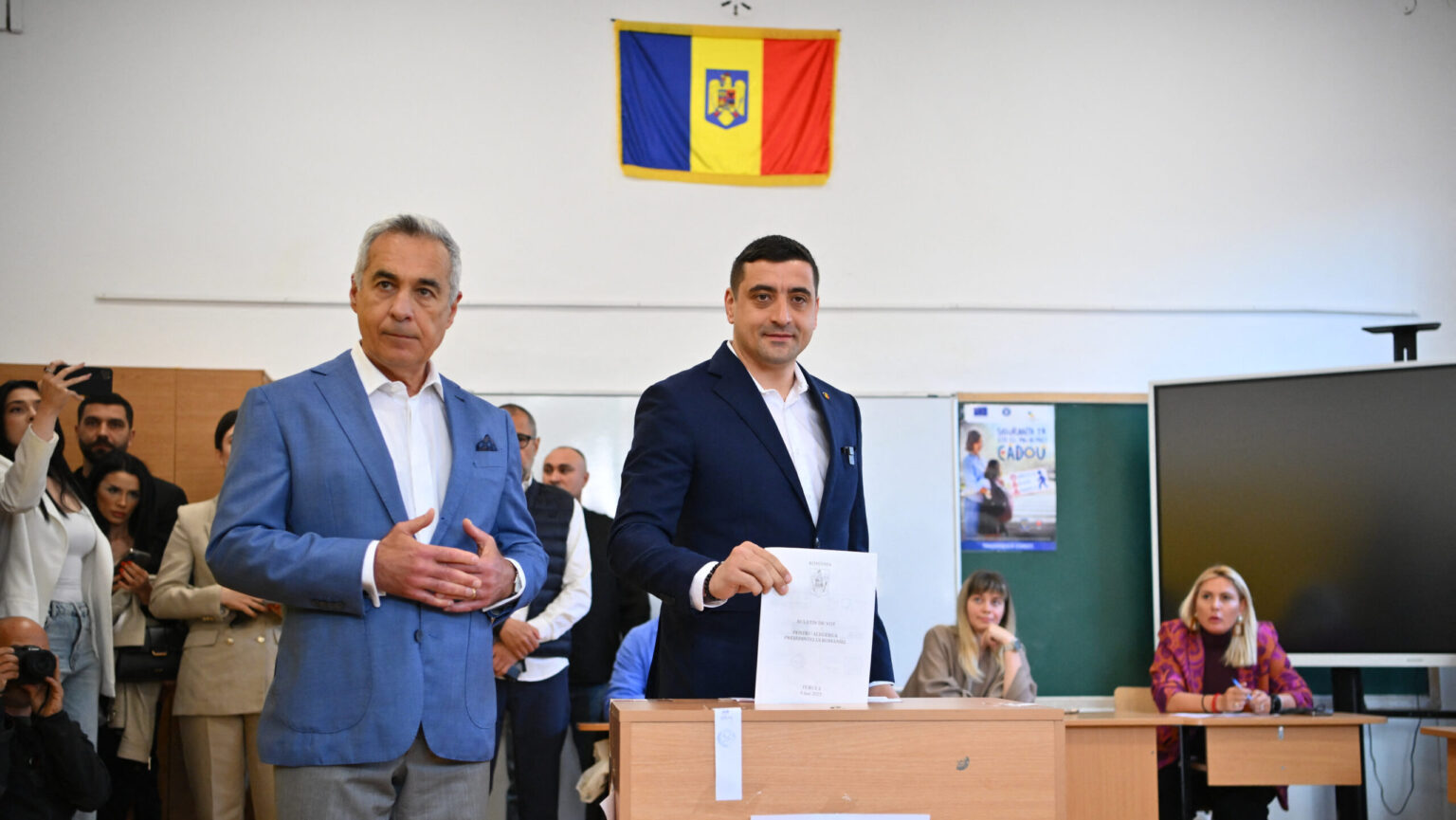
George Simion, candidate of AUR, won the first round of Romania’s presidential election, finishing ahead of Bucharest Mayor Nicușor Dan. The two will face off in the second round on 18 May, as the country grapples with the most serious democratic crisis in its modern history following the constitutional court’s annulment of the previous presidential results last December on questionable grounds.
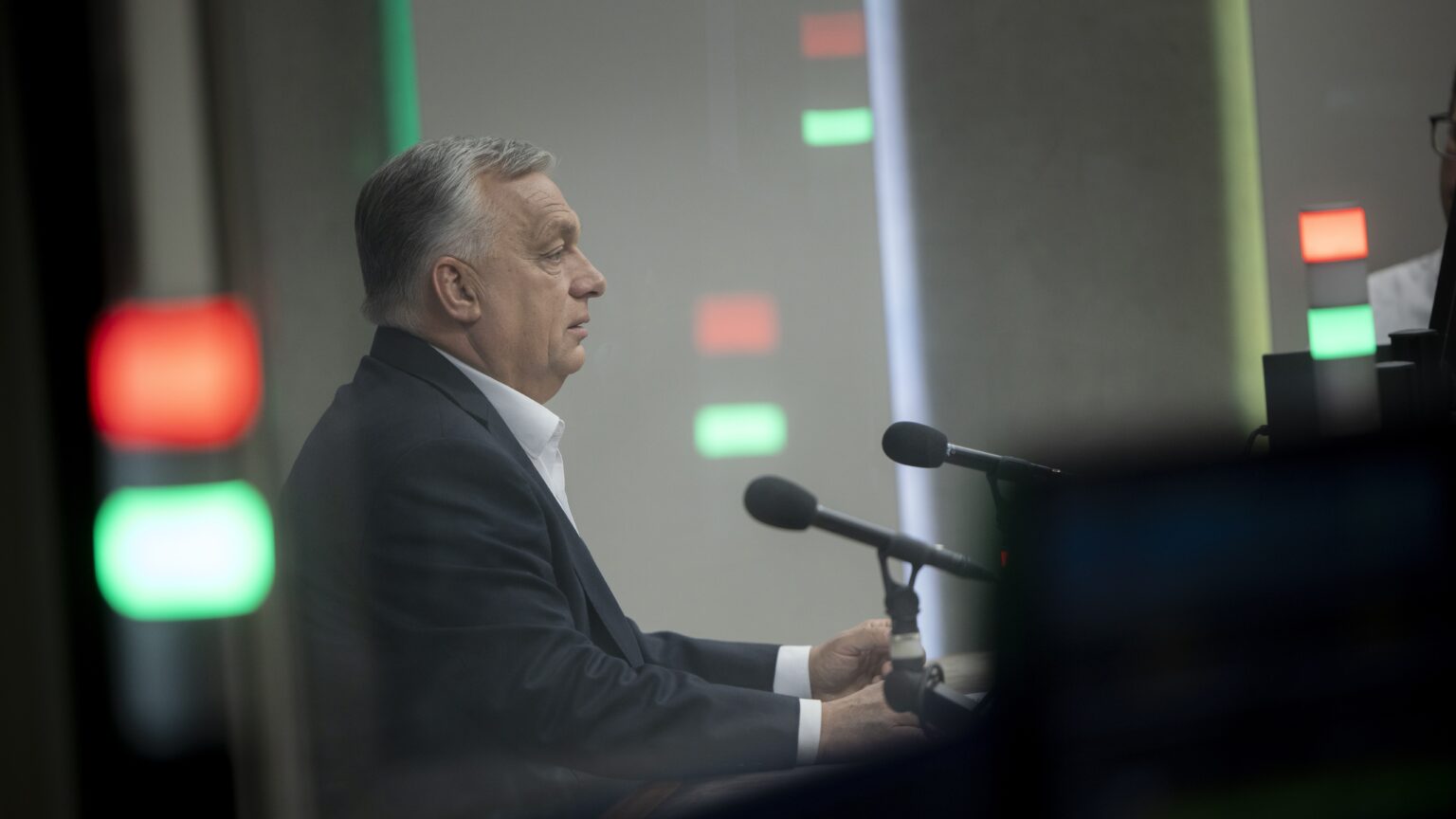
Prime Minister Viktor Orbán warned that Ukraine’s accelerated EU accession would devastate Hungary’s economy. Speaking on Kossuth Radio, he emphasized protecting domestic jobs and economic goals while accusing EU leaders of prioritizing war over peace.

‘Greenland, the world’s largest island, has attracted US interest not only for its natural resources but also for its geostrategic location. Both the Cold War and today’s geopolitical competition demonstrate that Arctic regions are increasingly significant from military and economic perspectives.’
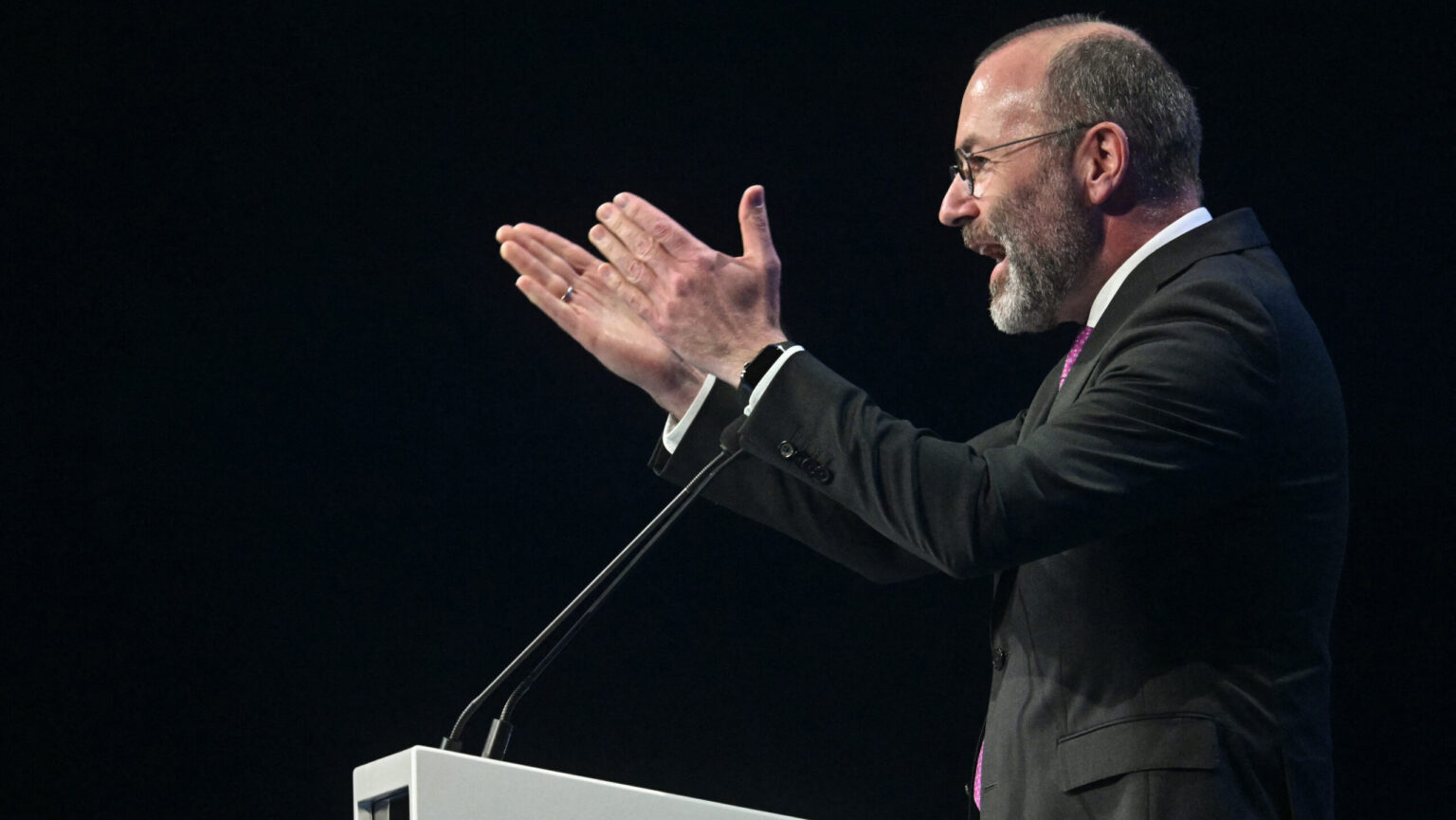
In a speech marked by boastfulness and distortion, re-elected EPP President Manfred Weber, while repeatedly attacking Hungarian PM Viktor Orbán, delivered a clear message to Hungary ahead of the 2026 elections: those who join the EPP are expected to strictly follow his political line, including military, financial, and political support for the war in Ukraine and Kyiv’s fast-tracked EU accession.

American conservative author Rod Dreher joined the Danube Institute’s new podcast, where he shared personal insights into his long-standing friendship with JD Vance and discussed the recently premiered documentary based on his 2020 book Live Not by Lies.
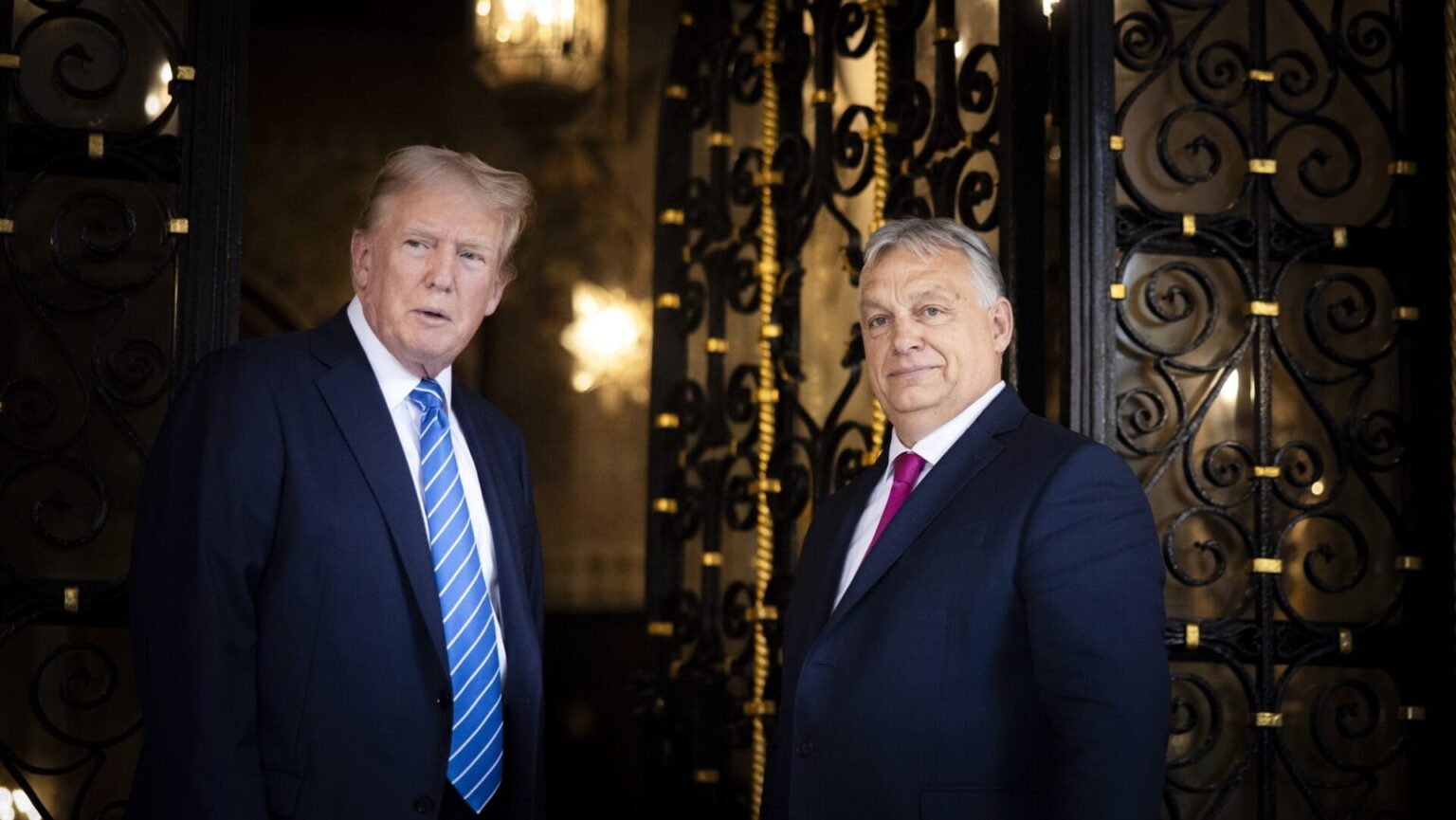
Donald Trump has now been in office for 100 days—an important milestone in any presidency. As a close ally, Hungarian Prime Minister Viktor Orbán and Hungary had high expectations of the Trump administration. But what has actually materialized? In this article, we take a closer look at the first 100 days of Trump’s second term through the lens of Hungary.
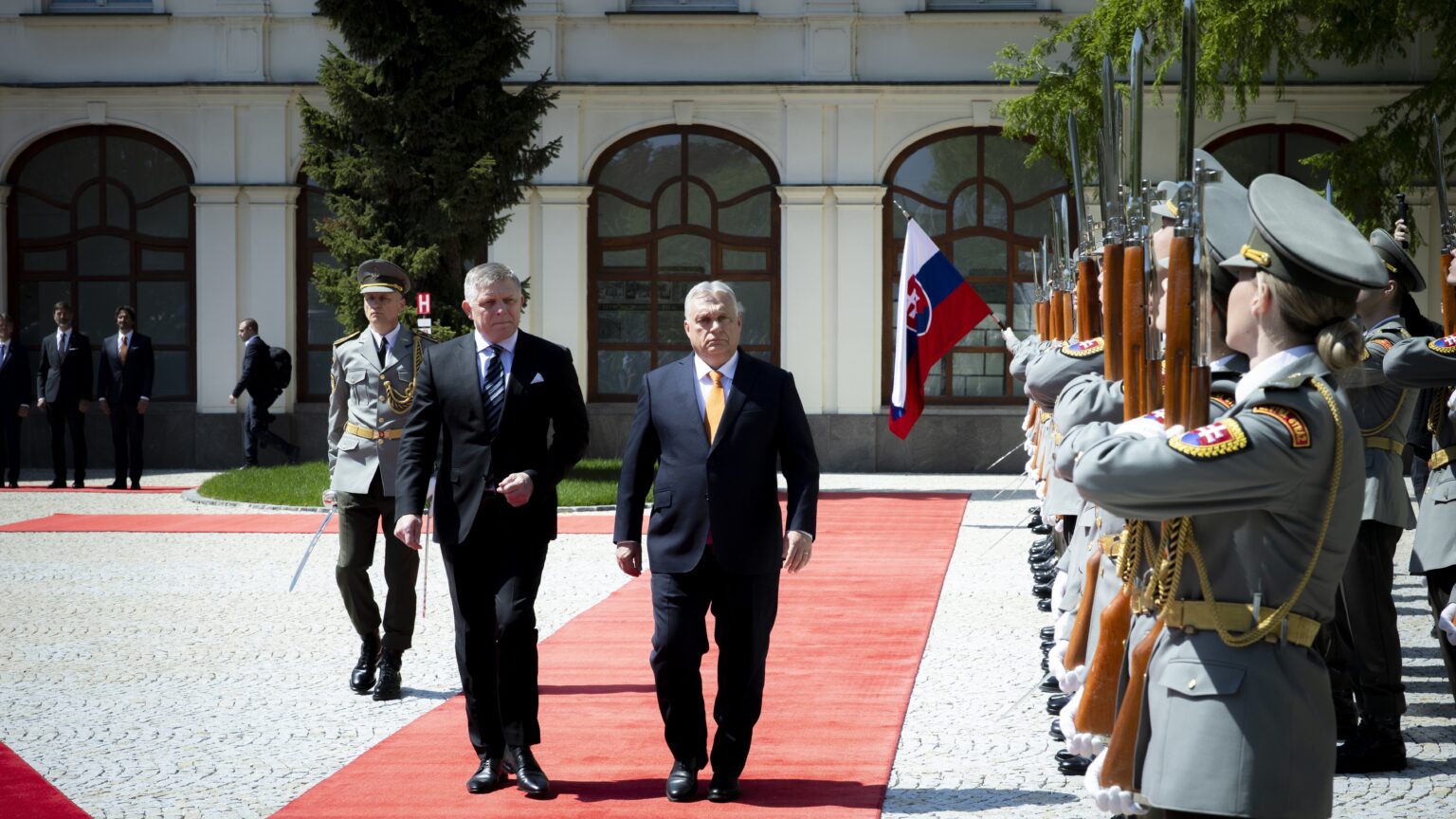
Hungary and Slovakia enjoy their strongest relations ever, PM Orbán said after talks with Slovak PM Fico in Bratislava. The leaders discussed trade, energy, and sovereignty, and pledged infrastructure projects and closer cooperation within the EU.
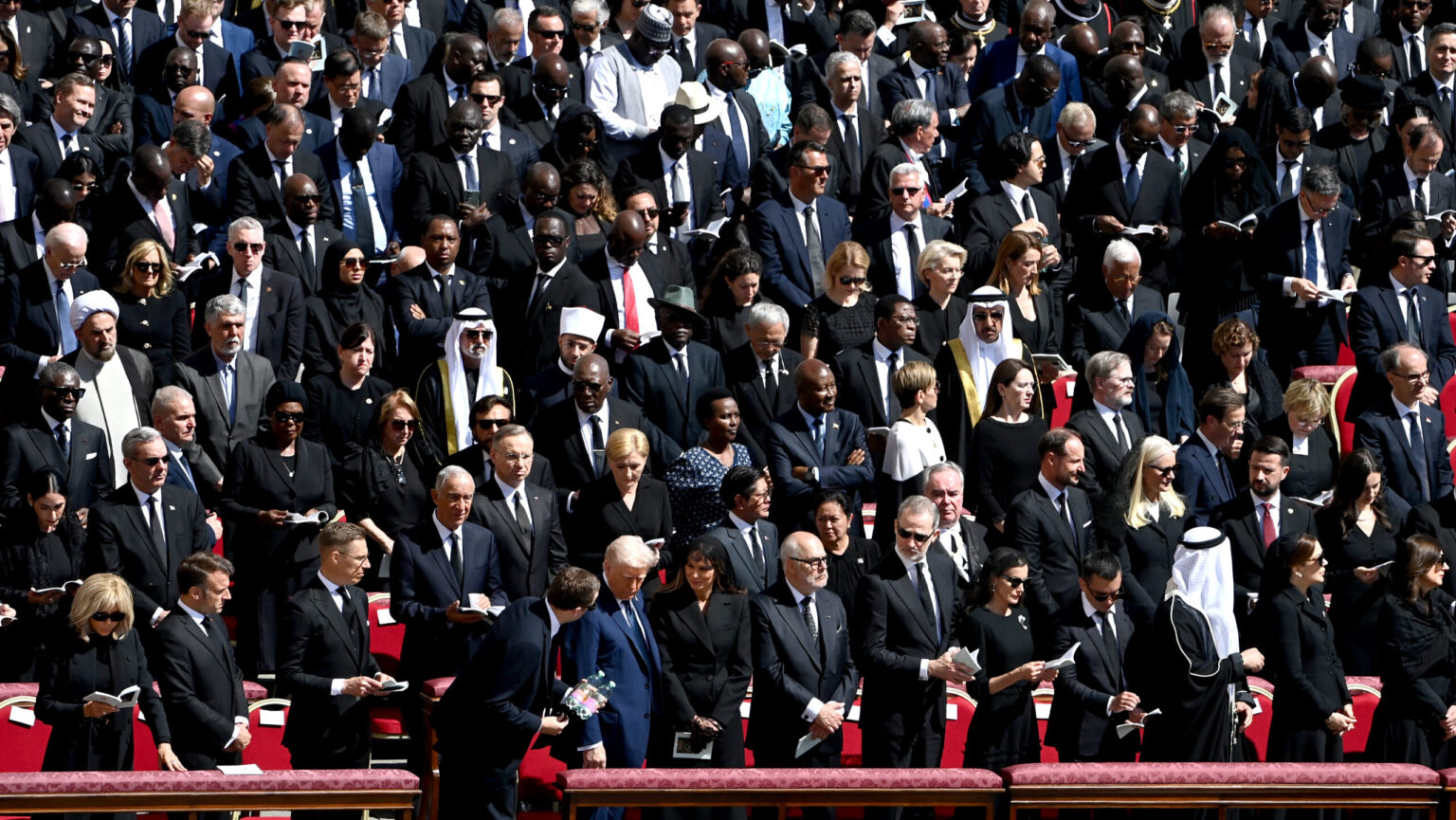
After Pope Francis’ funeral on Saturday, articles and social media posts about Donald Trump wearing a blue suit flooded the internet, accusing the US president of intentionally breaching protocol and disrespecting the late pope by not wearing black. The wave of outrage was triggered by Fortune, which deliberately misled the audience with a manipulated cover photo and a suspicious headline.
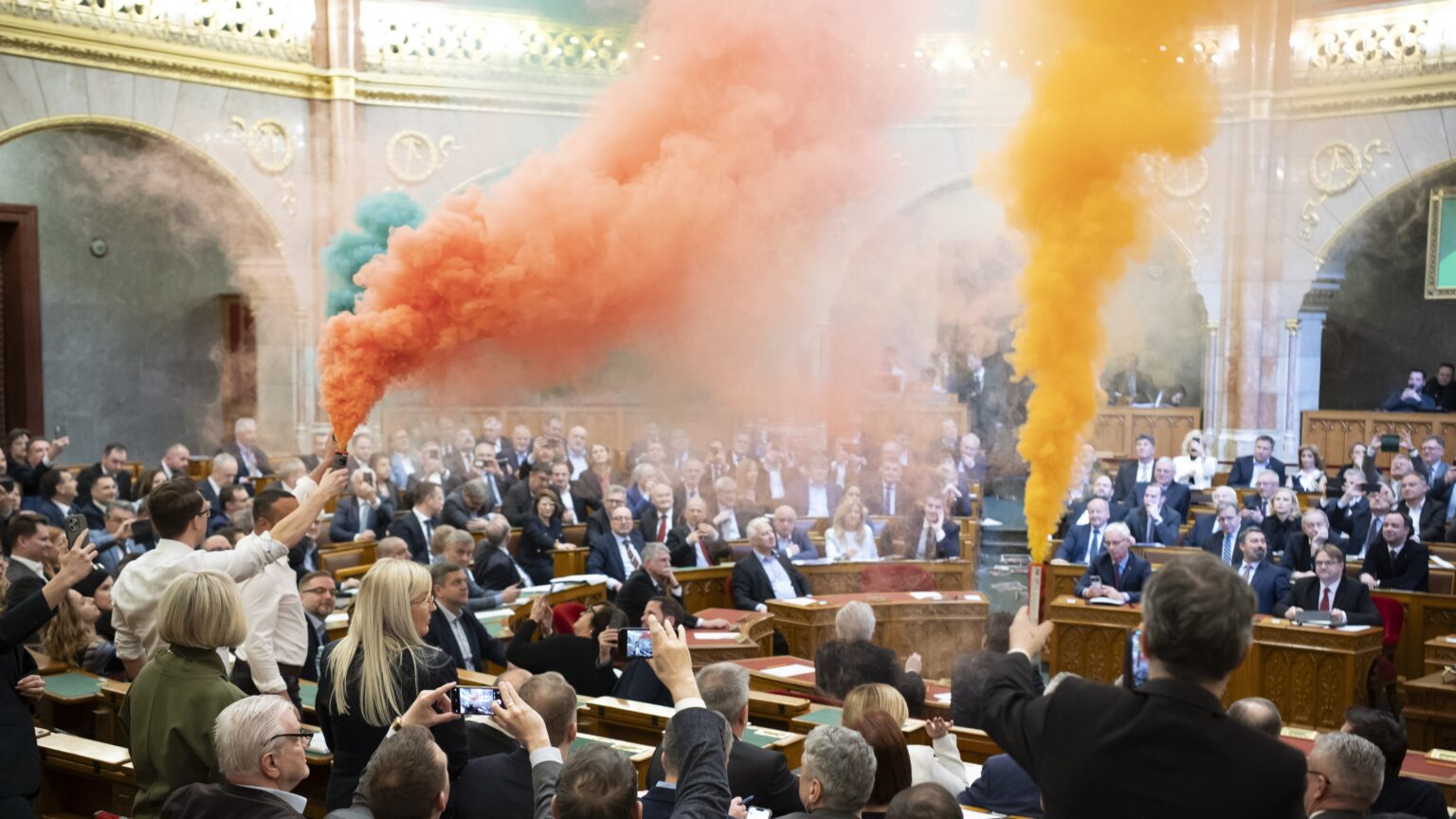
Hungary’s Parliament Speaker fined opposition MPs a record 82 million forints after they disrupted a vote on banning Pride events with smoke bombs and protest banners. Those lighting the devices were also banned from the parliament for 12 days.
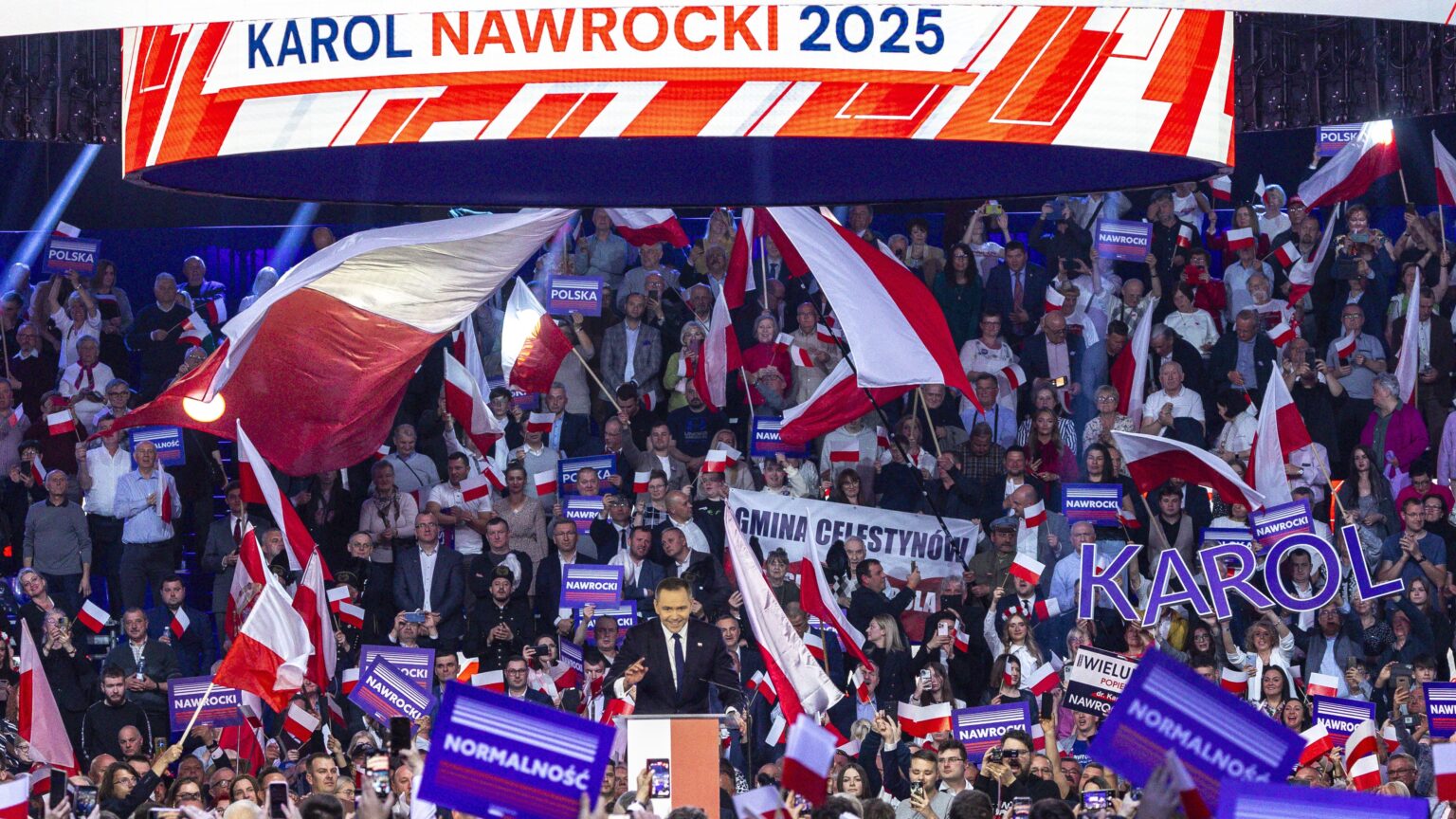
‘Polish conservatives are fighting to maintain the status quo, as President Duda serves as a defiant check on the whims of the Tusk government. Outcomes on legislation related to abortion, “hate speech”, faith, and migration are at stake. A Trzaskowski victory would offer carte blanche to a government that has already disregarded legal and institutional barriers to its exercise of power.’

‘Science suggests that 90 per cent is actually the lower limit for what would be Europe’s fair share of emissions reductions by 2040…if we are to achieve net-zero emissions by 2050, we cannot put on the handbrake now, when we have only 25 years to go, and 2023 figures show a reduction of only 37 per cent from 1990 levels so far.’
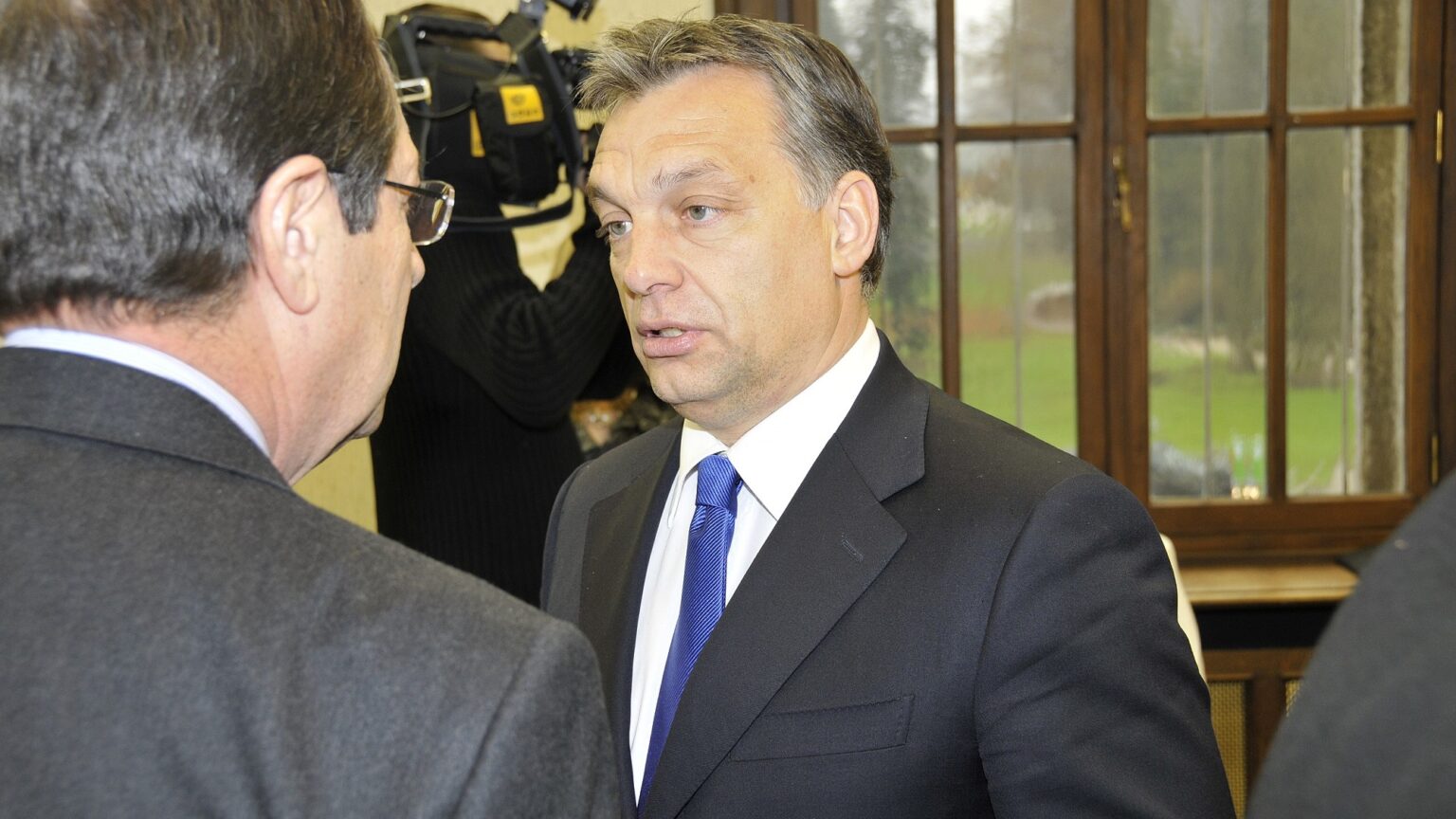
The Fidesz-KDNP coalition, led by Prime Minister Viktor Orbán, won 263 seats out of the National Assembly’s 386 at the time, and won the popular vote by 33.4 points, 15 years ago today, on 25 April 2010. They have won three more elections in a row with a constitutional supermajority since, which is an incredible feat.
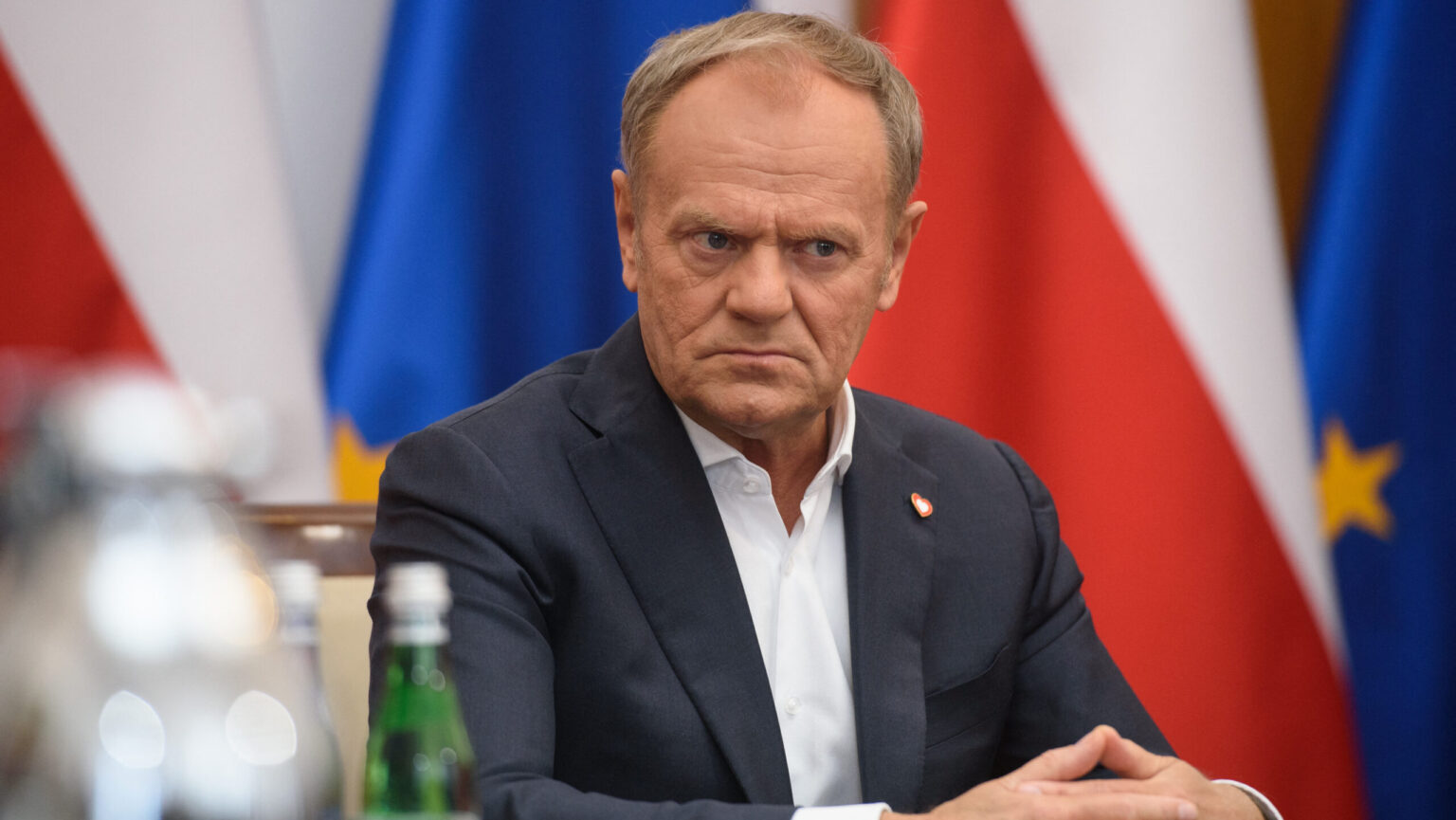
Polish PM Donald Tusk has been caught spreading disinformation on X, misleadingly portraying a recent speech by Hungarian PM Viktor Orbán as evidence that he is contemplating Hungary’s exit from the European Union. In doing so, Tusk appeared to be attempting to discredit the right-wing opposition PiS party—which maintains close ties with Orbán—just weeks ahead of the presidential election in May.
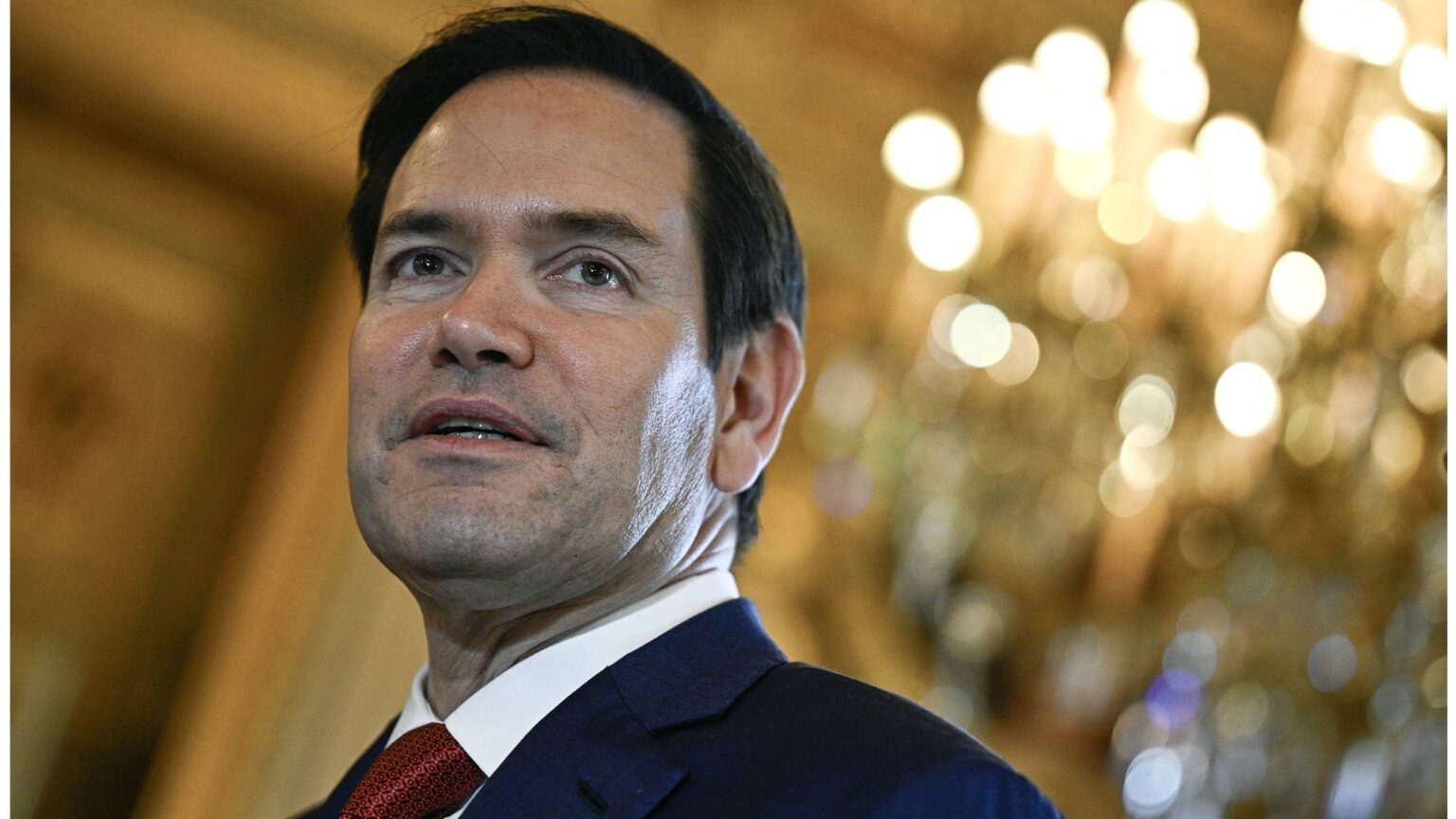
US Secretary of State Marco Rubio claimed in an X post that the report by POLITICO claiming that he and Special Envoy Steve Witkoff were debating lifting sanctions on Russia’s Nord Stream 2 pipeline is ‘unequivocally false’ and ‘if POLITICO has an ounce of integrity they will fully retract this piece of fiction.’

The Democratic Party of Korea is reportedly exploring ways to incorporate incentives similar to the Hungarian approach on family policy into its finalized policy package ahead of the presidential elections in June. South Korea is among the countries most severely affected by demographic decline—a crisis already having negative impacts across multiple sectors.
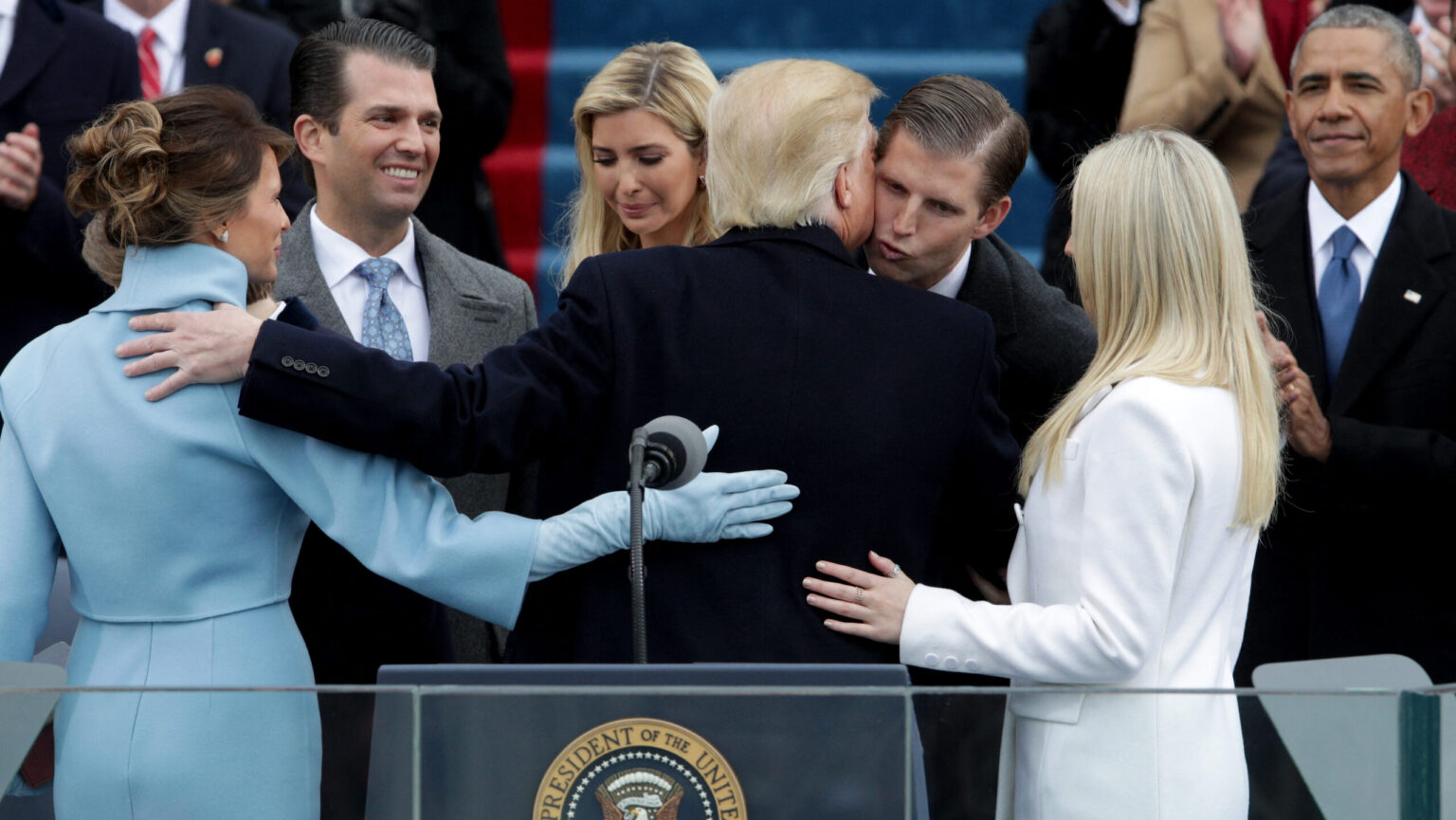
The draft family policy framework of US President Donald Trump’s administration has recently circulated in the media, with a $5,000 incentive for mothers—dubbed the ‘baby bonus’—stealing the spotlight. However, behind this lies a far more extensive and multi-layered approach, incorporating initiatives inspired by Hungary’s world-renowned and successful family policy model.

US President Donald Trump was among the first world leaders to announce that he will attend the funeral of the late Pope Francis on Saturday. Russian President Vladimir Putin, however, will not be present, and despite his close relationship with the pontiff, Hungarian Prime Minister Viktor Orbán will also skip the ceremony.

‘Albeit the Tineke Strik-led delegation was supposed to establish “facts” about the state of the Hungarian democracy and rule of law during their time in Budapest, Strik had her mind made up about these matters long before arriving in Hungary.’
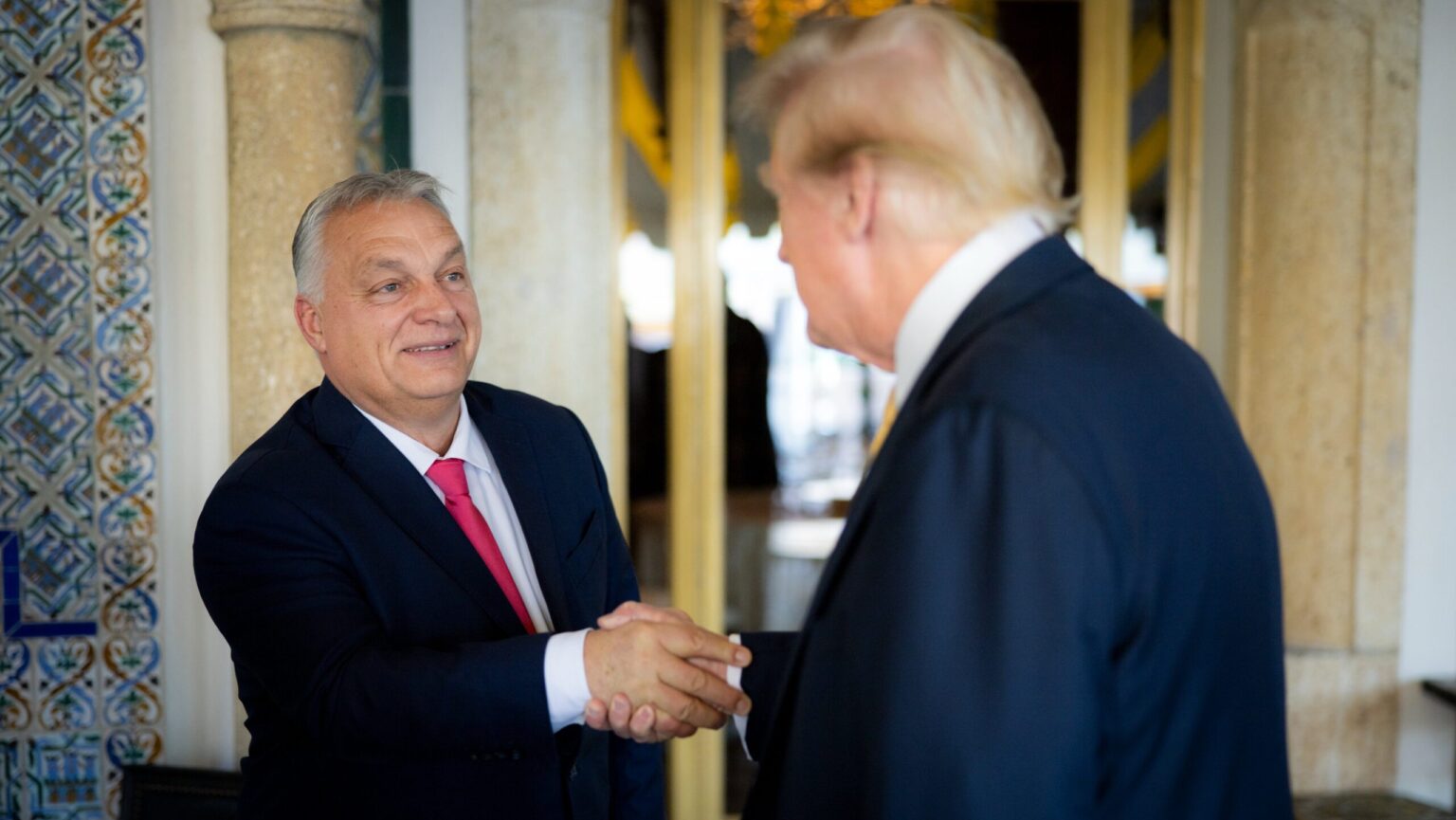
Prime Minister Viktor Orbán of Hungary has recently given an interview to local journalist András Hont, in which he expressed his view that US President Donald Trump’s ‘tariff wars’ will end in his regaining tariff deals with other countries, and even gave an estimation on when those will be finalized.

Just as before the 2022 parliamentary elections, the European Parliament’s rule of law mission visited Hungary this week. However, there are some crucial differences this time: not a single right-wing political group is represented in Tineke Strik’s delegation, and opposition leader Péter Magyar and his party are now openly and admittedly working against the interests of the Hungarian people.
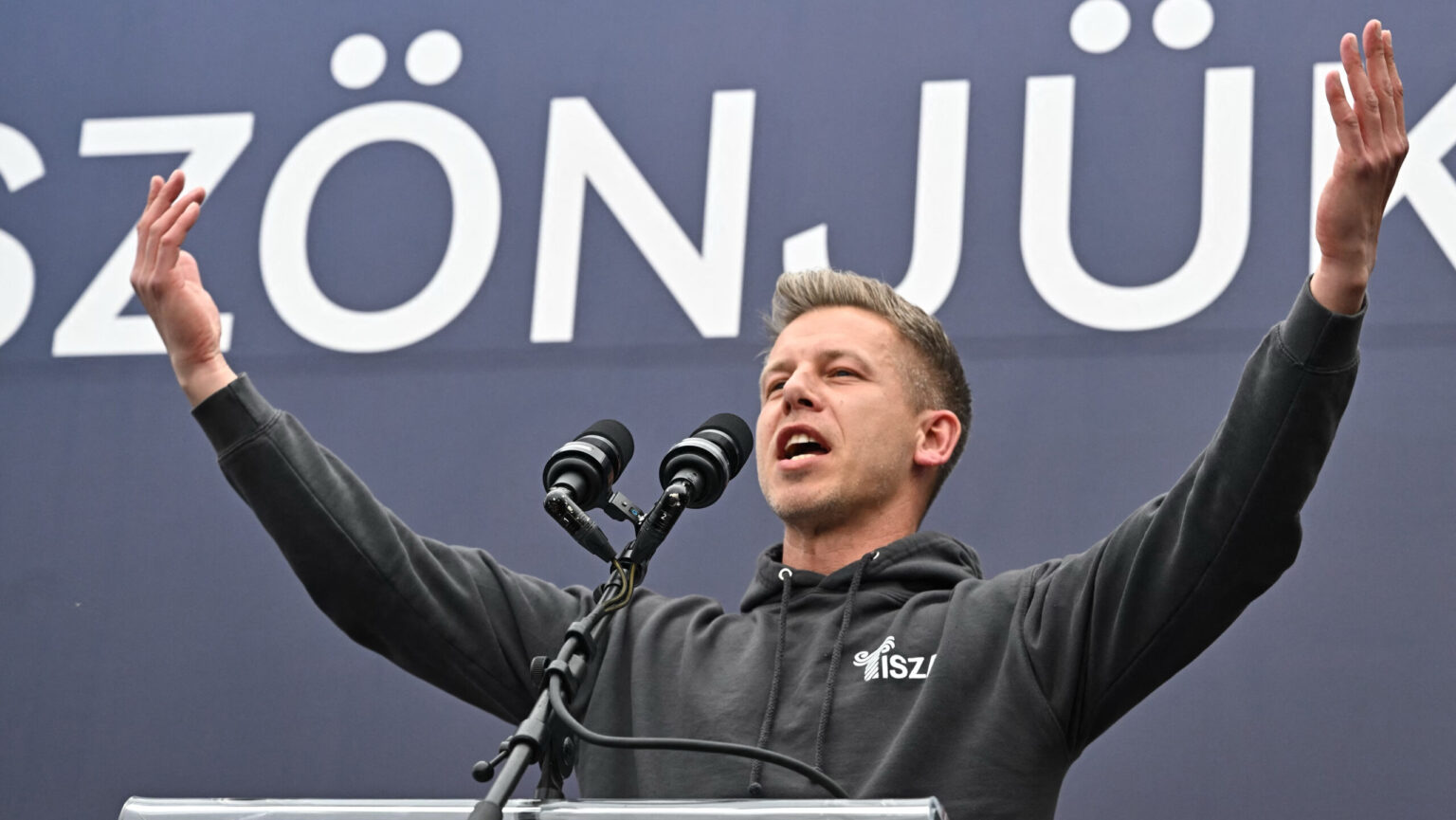
Just two days after calling for the criminalisation of disinformation, Hungarian opposition leader Péter Magyar posted a manipulated video of Prime Minister Viktor Orbán, attempting to smear him over his stance on Ukraine’s EU membership. It is yet another example of Magyar’s troubled relationship with the truth—one that has surfaced repeatedly, despite his still-nascent political career.
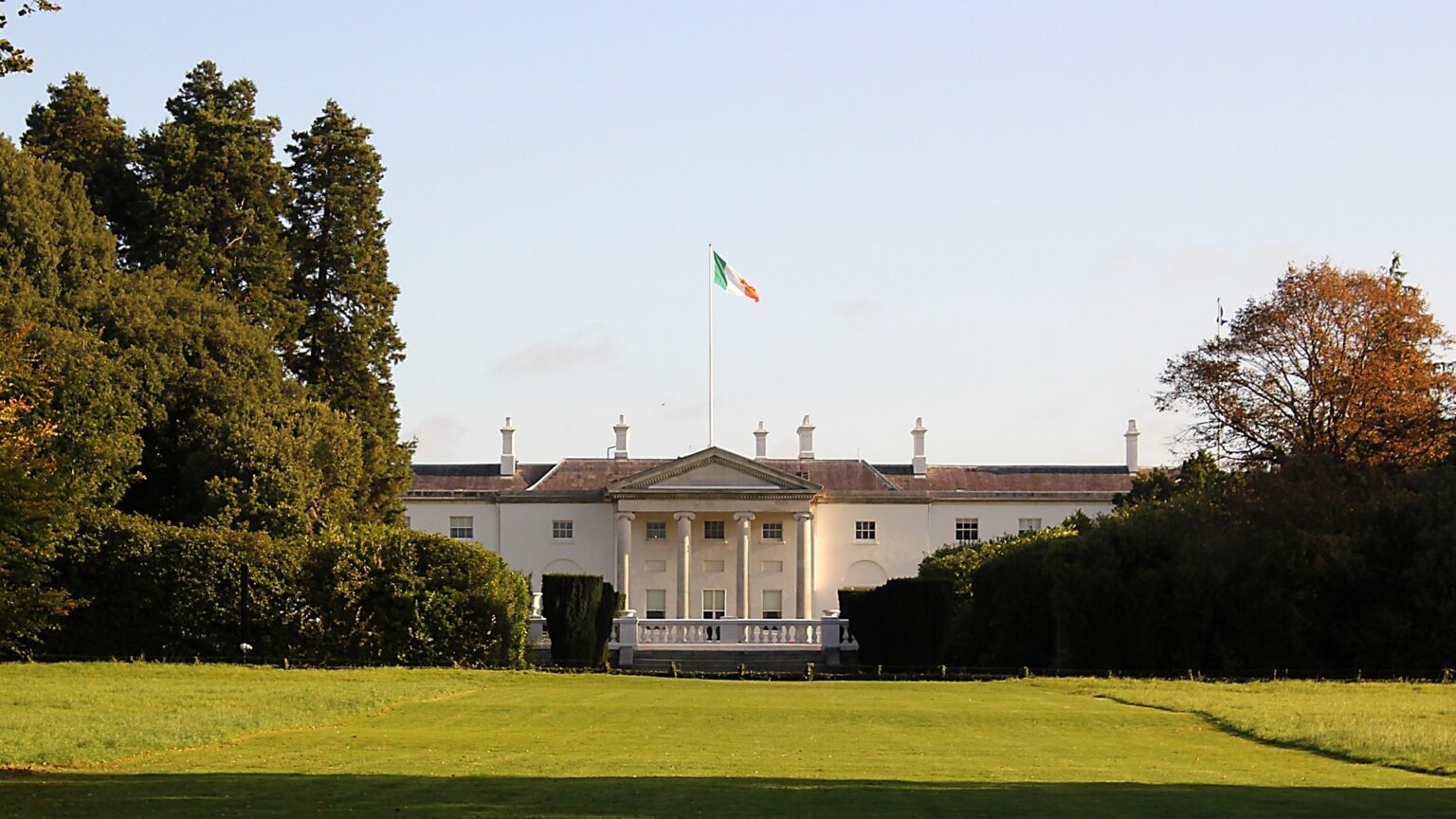
‘We have already seen that Hungary’s living standards have increased enormously in recent years. Unlike Ireland, however, Hungary remains a culturally conservative country. Nevertheless, there is reason to think that this might change in the future—at least, if careful measures are not taken to ensure that it does not.’
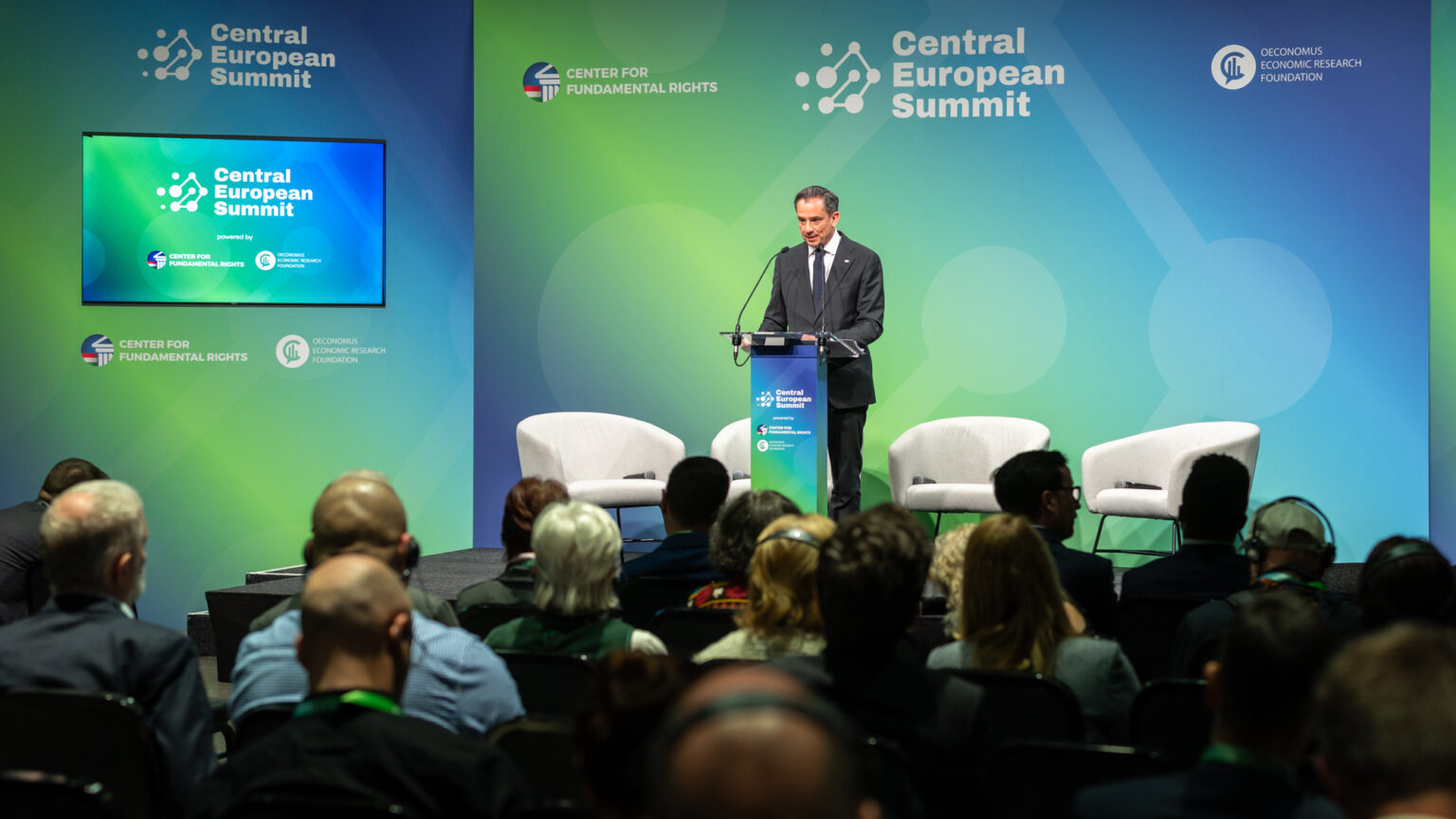
‘US policy towards Central Europe is grounded in realism, respect, and renewed engagement,’ US Chargé d’Affaires Robert Palladino emphasized, speaking on US–Central European relations at the Central European Summit, jointly organized by the Oeconomus Economic Research Foundation and the Centre for Fundamental Rights in Budapest.

Governor Josh Shapiro’s gubernatorial mansion was burned down on Sunday, 13 April in Harrisburg, Pennsylvania, as the Jewish statesman was celebrating passover with his friends and family. Suspect Cody Balmer has been arrested and charged in connection with the incident, an out-of-work welder with serious financial problems.

Ukraine’s accelerated EU accession could consume essential resources and undermine Hungary’s strategic position, warned Political Director to the Prime Minister Balázs Orbán, who outlined the financial, geopolitical, and security risks at a Budapest business conference.
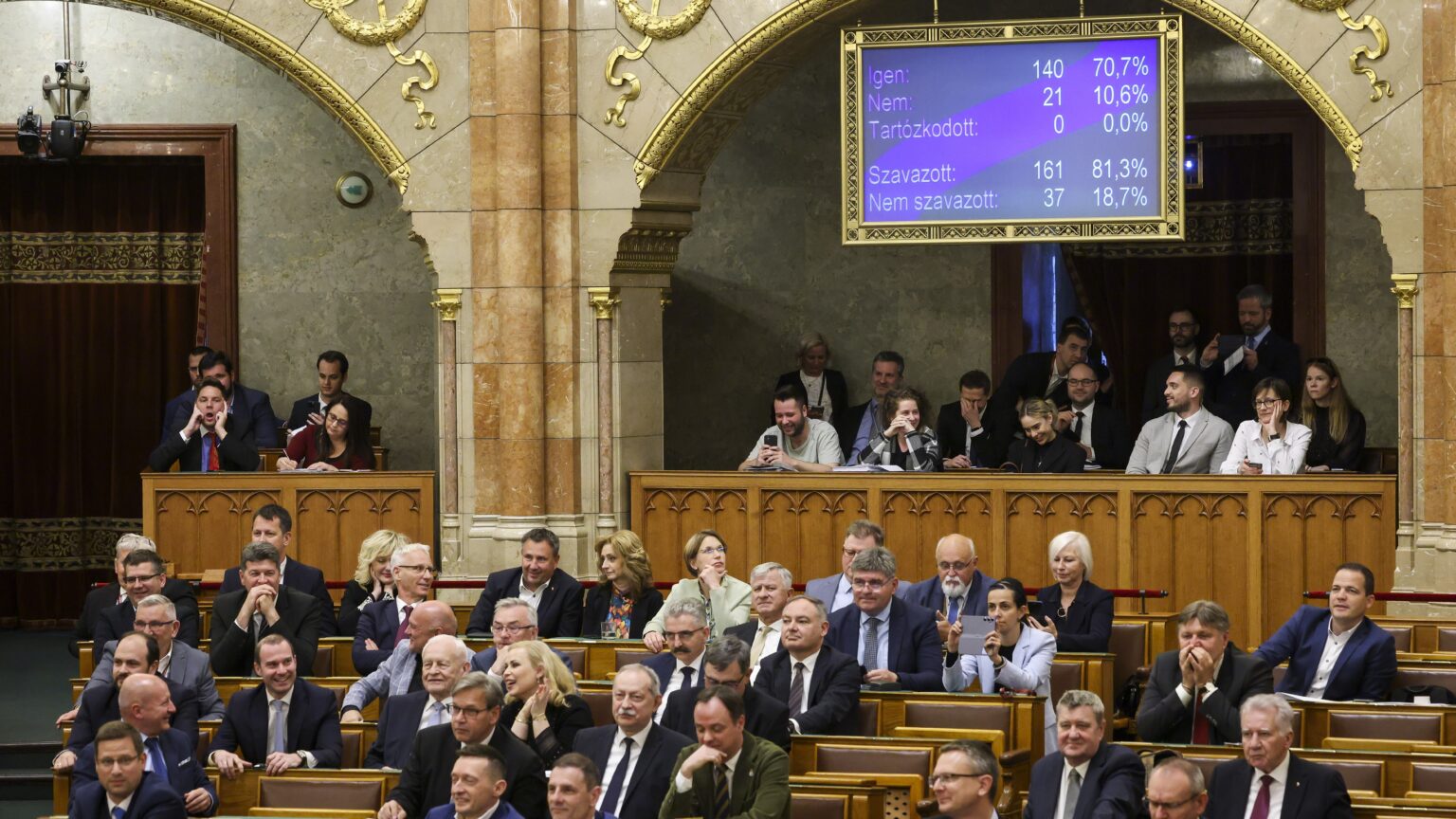
Hungary’s Parliament passed the 15th amendment to the Constitution, reinforcing traditional gender definitions, enshrining the right to pay with cash, and tightening rules on dual citizenship and government powers in emergencies.

Hungarian Conservative is a quarterly magazine on contemporary political, philosophical and cultural issues from a conservative perspective.